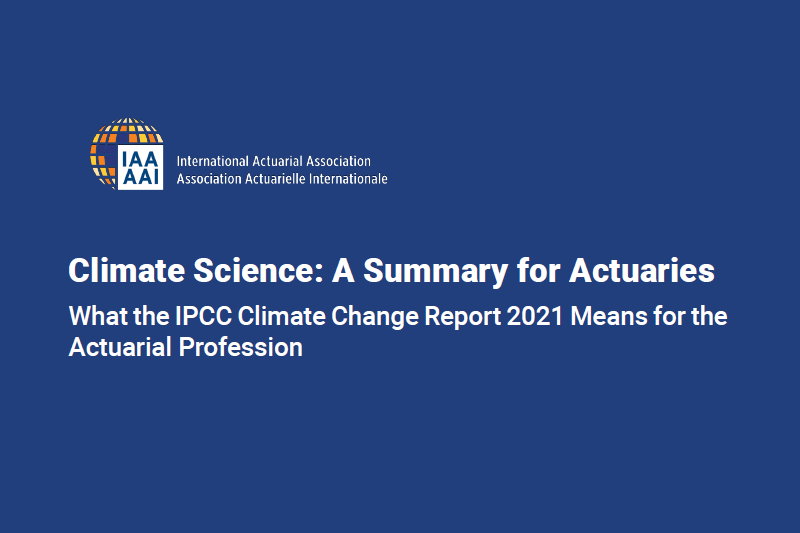Climate Science: A Summary for Actuaries, presented on April 13th 2022, summarises the IPCC’s Sixth Assessment Report (AR6) Working Group I (WGI) report in a manner tailored for the actuarial community. It has been co-developed by the authors of the IPCC report (e. g. Douglas Maraun, Wegener Center) and a team of actuaries and catastrophe experts from the International Actuarial Association (IAA). The scientific data and conclusions are attributed alone to the IPCC, while the need for emphasis on some risks, and the comments about actuarial practices have been provided by the IAA team. The paper is one of a small number of special summaries the IPCC has produced for specific stakeholders. Its purpose is to focus the vast amount of material produced by the IPCC in the AR6 WGI stream on issues most relevant to actuaries.
The Summary opens with the key messages from the WGI report, which are the strongest yet:
- For decades, we have known that the world is warming. Recent changes in the climate are widespread, rapid, and intensifying. They are unprecedented in thousands of years.
- It is indisputable that human activities are causing climate change. Human influence is making extreme climate events, including heatwaves, heavy rainfall, and droughts, more frequent and severe.
- Climate change is already affecting every region on Earth, in multiple ways. Its effects will increase with further warming.
- There is no going back from some changes in the climate system. However, some of these changes could be slowed and others could be stopped by limiting future warming.
- Unless there are immediate, rapid, and large-scale reductions in greenhouse gas emissions, limiting global warming to 1.5°C or even 2°C relative to 1850–1900 (preindustrial levels) will not be possible.
- To limit global warming, strong, rapid, and sustained reductions in emissions of carbon dioxide, methane, and other greenhouse gases are necessary. This would not only reduce the consequences of climate change but also improve air quality.
The paper then goes on to review the language the IPCC uses to communicate uncertainty, the current state of the climate, evidence human activity is responsible for climate change, trends in extreme weather and future climate change. It also covers the relationship of Shared Socio-economic Pathways (SSPs) and Representative Concentration Pathways (RCPs), how to use and interpret near-term climate information, future regional changes and ways to limit climate change. The paper has several Annexes, covering how to use the climate data from the IPCC, the IPCC’s ‘interactive Atlas’ and a glossary of key terms.
>> Full Summary
